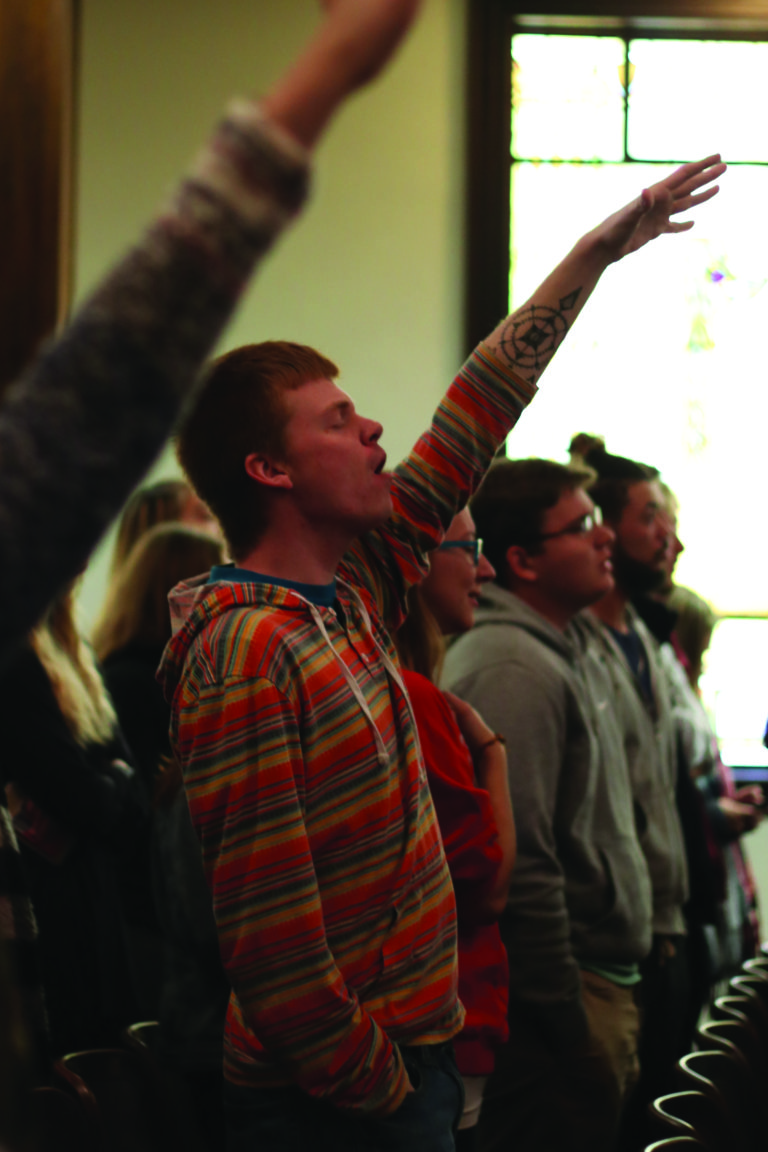By Victoria Watson, Contributing Writer
When asked if she had witnessed any students being bold, Julia Conley responded, “A guy asked a girl out on a casual date,” She then laughed, “Oh wait, this is Asbury. That didn’t happen.”
Across Asbury University’s campus, students find unique and everyday opportunities to exercise the 2017 chapel theme: Be bold. Paul Stephens, associate dean of Student Leadership Development, defines boldness as “trying something new, taking a risk, modifying routines, holding to conviction or stepping into anything that stretches us to new levels.” Campus chaplain Greg Haseloff explains that this theme was developed to express one of Asbury’s spiritual formation goals: “we are committed to ‘outreach that shares the love of Jesus.’”
Boldness for freshman Gabrielle McLaughlin meant going alone. She had no one to accompany her to a new church after two buddies had backed out or slept through alarms. A new state. A different home. A sea of unfamiliar faces. In her room McLaughlin debated her personal commitment as a churchgoer with doubts, “I don’t even want to go. I’m so scared. I should just not go.” McLaughlin concluded, “I finally gained the courage to just go … even though I was terrified, I still went.”
Another student pursued being bold in front of an audience, literally. According to director Doug Smart, approximately 50 students auditioned for the sitcom “Friends Like You” taping Oct. 4-6. Pushed by peer encouragement and support, junior Natalia Berkey recalls, “It was ‘no’ up until 15 minutes before I ended up auditioning. I had the, what are those called? … Yeah, I had a script thingy. I thought, ‘I need to be bold,’ because that’s what we had talked about in chapel and I can’t be afraid to go up there … So I went in and I tried my best.” After an equally if not more nerve-racking callback experience, Berkey landed a role as co-host.
While Berkey was rewarded for her courage in trying something new, other students report not always finding success. Sophomore Peter Manchester feels as though he is failing as a novice student government leader in his position as co-chairman of the new Equity and Worship Committee, which operates under Student Intercultural Programs. Manchester must build a committee from scratch and states, “My roster should be pretty much solidified for who’s on my committee and I have not connected with anyone.” He believes in the committee’s mission – to bring awareness to diverse forms of worship – but is nervous, as he does not “want to let down the program … I want to do it justice.”
“You can be obedient and still experience failure,” Haseloff says. He says that hindrances such as insecurity, unknown outcomes, and self-image deter many from boldness. Yet Stephens reminds students, “True failure is found in not trying.”
Photo by Betsy Oda




